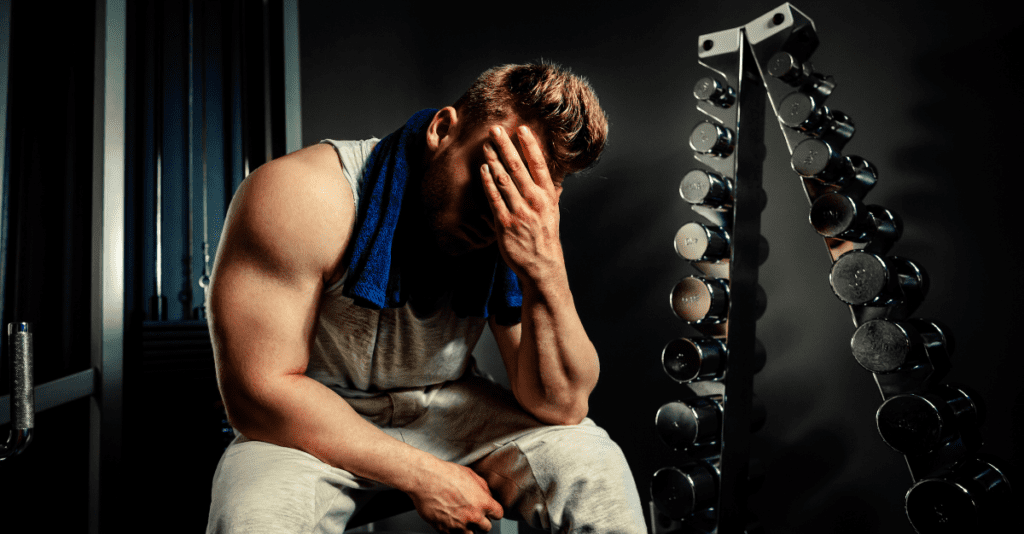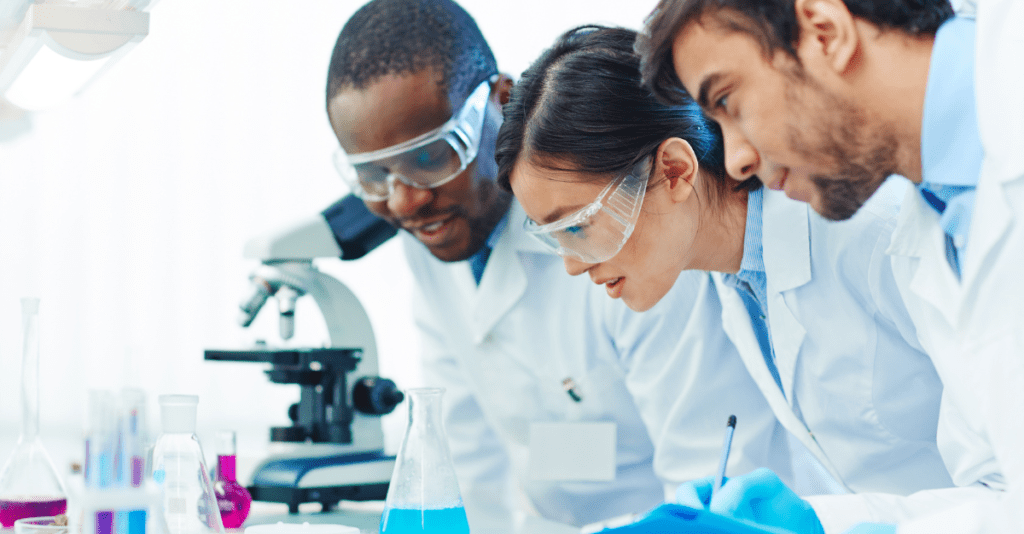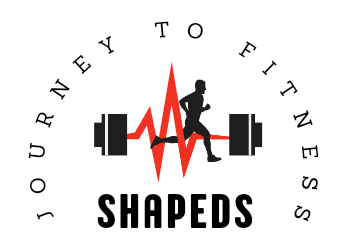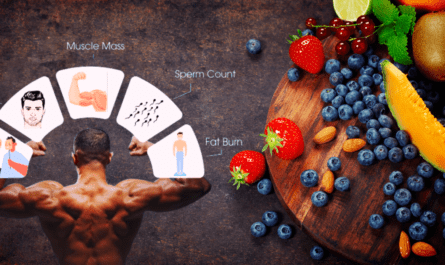In a world filled with fitness myths and misinformation, the topic of masturbation and its supposed link to muscle loss has gained unnecessary attention. Let’s explore into the scientific facts, disperse the myths, and explore the complexities surrounding this controversial subject.
Introduction

Brief overview of the topic
The connection between masturbation and muscle loss has been a source of confusion and speculation, leading to various misconceptions in the fitness world.
Why the topic is controversial
The controversy arises from a lack of accurate information and the perpetuation of myths, often fueled by societal taboos surrounding sexual health.
Importance of discussing myths related to masturbation and muscle loss
Addressing this topic is crucial for promoting accurate information, dispelling myths, and raising a healthier understanding of sexual health.
Dispelling the Myth: Understanding the Body
Explanation of the muscular system
The muscular system is like our body’s engine, helping us move and do activities. Muscles work by contracting (getting shorter) and relaxing (getting longer). They play a crucial role in actions like walking, lifting, and even smiling.
How muscles work and grow

Muscles work by contracting when we move—like pulling on a rope. When we exercise or lift things, tiny muscle fibers get small tears. Our body then repairs and builds these tears, making muscles grow stronger and bigger over time.
Clarifying the connection between masturbation and muscle loss
There is no direct connection between masturbation and muscle loss. Muscles grow and function independently of sexual activities. Engaging in masturbation does not impact the strength or size of your muscles—it’s a natural and normal part of human physiology. Any claim suggesting otherwise lacks scientific support.
Examining Scientific Studies

Scientific studies, like detectives for our bodies, have looked closely at whether masturbation affects our muscles. Imagine these studies as superhero investigators in lab coats! After lots of research, they’ve concluded that there’s no superhero connection between masturbation and muscle loss. So, feel free to flex those muscles without worrying – science has your back!
Perplexity in the Fitness World

Unraveling the confusion surrounding masturbation and fitness
Let’s untangle the mystery around masturbation and fitness. Misinformation on social media platforms and unreliable sources contribute to the perplexity surrounding this topic. Some folks got confused, but it turns out there’s no magical link between the two. Fitness stays its own superhero, and you can enjoy a healthy workout without worrying about any side effects from your personal time. So, unravel the confusion and feel free to hit the gym with confidence!
Addressing misinformation on online platforms

Let’s tackle the false stories floating around online. Misinformation about things like masturbation can be like whispers in a crowded room – unreliable and easily misunderstood. It’s crucial to fact-check and find trustworthy sources. By addressing the online myths, we pave the way for clearer, accurate information and help everyone make informed decisions about their health.
Encouraging fact-checking and critical thinking
Picture this: your brain is a superhero cape, and it loves solving puzzles! When you hear things about topics like masturbation, give your cape a swirl and start fact-checking. It’s like being a detective, sorting out what’s true and what’s just gossip. So, let’s celebrate our superhero brains by thinking critically and making sure we’ve got the real scoop!
Psychological Impact on Physical Well-being

Discussing the mind-body connection
Understanding the interplay between mental and physical health is crucial for a comprehensive approach to well-being.
Analyzing the role of stress in muscle health
High-stress levels can negatively impact muscle health, highlighting the importance of stress management.
Promoting a holistic approach to well-being
Encouraging individuals to focus on mental and emotional well-being as integral components of overall health.
Busting Myths and Stereotypes

Addressing common myths about masturbation
Challenging misconceptions around masturbation contributes to a healthier and more open discourse on sexual health.
Encouraging open conversations about sexual health
Creating a safe space for open discussions helps break down taboos surrounding sexual health topics.
Promoting a positive and informed outlook
Fostering a positive perspective on sexual health empowers individuals to make informed decisions without unnecessary fear.
Burstiness: Breaking Down the Stereotypes
Let’s burst the bubble of stereotypes! Burstiness is like popping those myths that don’t hold up. In the case of masturbation and stereotypes, it’s about breaking free from expectations and embracing personal choices. Think of it as smashing through barriers, making room for diverse perspectives, and creating a more open and understanding world. Burst those stereotypes – it’s liberating!
Real-life Testimonials
Sharing experiences of individuals who have debunked the myth
Real-life stories from individuals who have debunked the myth provide relatable and inspirational narratives.
Personal narratives on the journey to dispelling misconceptions
Understanding personal journeys helps humanize the topic and encourages empathy and understanding.
Encouraging a supportive community for open dialogue

Building a supportive community encourages open dialogue, reducing stigma around sensitive topics.
The Power of Education

Advocating for comprehensive sexual education
Promoting comprehensive sexual education ensures individuals receive accurate information from a young age.
Importance of teaching critical thinking skills
Equipping individuals with critical thinking skills empowers them to discern fact from fiction in the vast sea of information.
Empowering individuals with knowledge for informed decision-making
Knowledge is a powerful tool that empowers individuals to make choices aligned with their values and well-being.
Common Misconceptions About Muscle Loss
Addressing other factors contributing to muscle loss
Imagine your muscles as superheroes, but sometimes they face villains like aging and a sedentary lifestyle. It’s not just one bad guy; it’s a team effort against muscle health. By understanding and addressing these factors, it’s like having a strategy meeting to keep our superhero muscles strong and ready for action. So, let’s assemble our team and tackle those villains together!
Highlighting the role of aging and sedentary lifestyle
Imagine your muscles as timeless heroes, but as time passes, they face a subtle opponent called aging. It’s like a storyline in which our muscles need extra care as the years go by. On another front, being too cozy on the couch is a sidekick that can weaken our muscle squad. To keep our muscle heroes thriving, we must recognize and counteract the impacts of both aging and a sedentary lifestyle. It’s our way of ensuring a long and active adventure with our muscle champions!
Encouraging a well-rounded understanding of health
Let’s embrace the full picture of health, like enjoying a complete meal instead of just one dish. Encouraging a well-rounded understanding means considering everything that contributes to our well-being – physical, mental, and even emotional health. It’s like looking at a beautiful painting; each element plays a crucial role in creating the masterpiece of our overall health. So, let’s savor the full spectrum of well-being for a happier, healthier life!
Conclusion
In this journey through the details of masturbation, muscle health, and overall well-being, we’ve unraveled myths, explored scientific truths, and embraced a holistic perspective. The superhero muscles in our body don’t tremble at the thought of personal choices like masturbation – they increase independently. Scientific studies have stood guard, dispelling misconceptions, and urging us to rely on credible sources.
FAQs
Q. Is there any scientific evidence supporting the claim that masturbation leads to muscle loss?
No, scientific studies consistently disprove the notion that masturbation has any direct impact on muscle loss.
Q. How can individuals distinguish between reliable and unreliable sources when researching such topics?
Look for information from reputable medical and fitness institutions, peer-reviewed journals, and experts in the field.
Q. What role does nutrition play in maintaining muscle health?
A balanced diet rich in protein, vitamins, and minerals is essential for supporting overall muscle health.
Q. Are there other factors besides masturbation that can contribute to muscle loss?
Yes, factors like aging, sedentary lifestyle, and poor nutrition can also contribute to muscle loss.
Q. How can communities foster open dialogues about sexual health to reduce stigma?
Creating safe spaces, promoting comprehensive sexual education, and encouraging respectful discussions contribute to reducing stigma.



